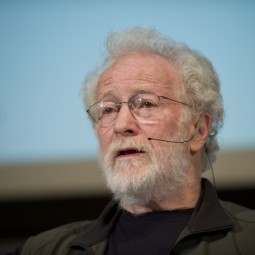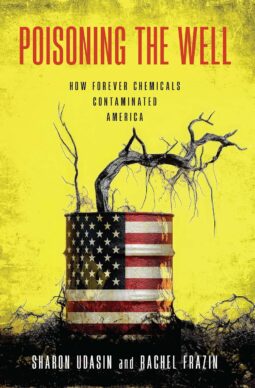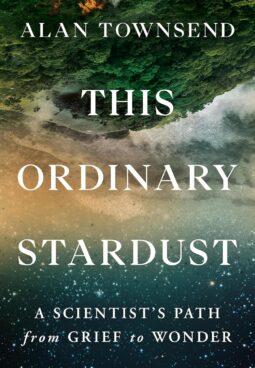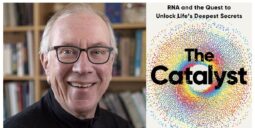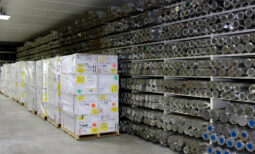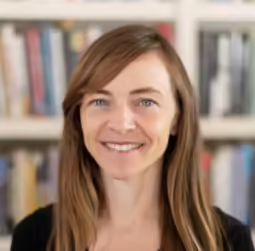DE-FUNDING SCIENCE
National Institute of Standards
Atomic Spectroscopy Group
TRANSCRIPT of KGNU Science Show April 22, 2025
Shelley Schlender [00:00:13] I’m Shelley Schlender. This is How on Earth, the KGNU Science Show. Today is Tuesday, April 22nd, 2025. Coming up, we look at federal cutbacks of a group that provides the entire world with accuracy measurements that help with everything from better smartphones to finding exoplanets. It’s the defunding of the National Institute of Standards and Technologies Atomic Spectroscopy
Alexander Kramida – Atomic Spectroscopy Group [00:00:41] We receive hundreds of letters suggesting support. Most of them are from abroad. China, of course, they are very generous in their suggested salaries and so on, but we don’t want to move to China.
Shelley Schlender [00:01:01] I’m Shelley Schlinder. This is a year with many cutbacks in federal funding. Time is running out on funding for many scientists. As part of that, we’re going to look today at one small band of accuracy experts who create crucial standards for scientists around the world. These experts are with the National Institute of Standards and Technology, also known as NIST. NIST has offices here in Boulder that are getting federal cutbacks right now. And also offices in Maryland that are getting cutbacks. So what is NIST? To understand its overall mission, check the clock on your smartphone, on your computer. They’ll show the same time, thanks to NIST’s incredibly accurate atomic clocks. The National Institute of Standards and Technology also maintains accuracy on complex things like GPS coordinates. You know, what you use for mapping and something that most people don’t know anything about, something called atomic spectroscopy. To understand a spectrum, picture a rainbow. That beautiful arc of colors, happens when water droplets refract sunlight into its visual spectrum. Every rainbow has the same colors. It’s the fingerprint of sunlight refracted through water. When it comes to atoms, spectra get more invisible and complicated. Atomic spectra involve the patterns of light energy that come out of or go into an atom. Each atom has a unique spectrum. Each ion of that atom has its own unique spectrum and so on. These unique fingerprints provide crucial IDs and calibration for etching, advanced macrochips for detecting a missile launch, for finding exoplanets. Through the National Bureau of Standards and Technology, the Atomic Spectroscopy Group has maintained a database about this information that’s free to anyone around the world. The Atomic Spectroscopy Group database is so important it’s one of the top three most frequently accessed datasets at NIST. Last month, the federal government sent out notices that it is shutting down this atomic spectroscopy group. Here’s an overview of what’s happening from How on Earth volunteer Joel Parker.
Joel Parker [00:03:29] I’m Joel Parker with How on Earth. In my research work as an astronomer, I have been on many projects that used the database from the Atomic Spectroscopy Group, including studies of the chemical compositions of comets and planets. It appears the reason given for closing the group was that their work is not considered to be statutorily essential for the National Institute of Standards mission. The mission stated on the NIST website seems to be exactly the kind of services that the Atomic Spectroscopy Group provides. According to their website, the National Institute of Standards and Technology, or NIST, is one of the nation’s oldest physical science laboratories, founded in 1901, and is now of the U.S. Department of Commerce. Congress established the agency to remove a major challenge to U.S. Industrial competitiveness at the time, a second-rate measurement infrastructure that lagged behind the capabilities of the United Kingdom, Germany, and other economic rivals. The NIST mission statement is to promote U. S. Innovation and industrial competitivness by advancing measurement science standards and technology in ways that enhance economic security and improve our quality of life. The work performed by the Atomic Spectroscopy Group fundamentally is measurement science and standards. For How on Earth, I’m Joel Parker.
Shelley Schlender [00:05:13] Thanks to Joel for that summary. To catch up on what’s happening, last Friday I talked with a member of the Atomic Spectroscopy Group in NIST’s Maryland offices.
Alexander Kramida – Atomic Spectroscopy Group [00:05:25] Alexander Kramida. That’s how I pronounce it in English. I am originally from Soviet Union, born in Ukraine.
Shelley Schlender [00:05:34] Alexander Kramida is a lean man with graying hair. On our Zoom call, he sat in a windowless office surrounded by file cabinets and research papers. It was a small office. He looked determined but weary. Here is Alexander Kramida.
Alexander Kramida – Atomic Spectroscopy Group [00:05:50] That’s how we know about the stars. We are looking at the light, they emit or absorb and we are deciphering their composition and their history and can make projections what will happen with the star.
Shelley Schlender [00:06:05] Now I understand all of these things best when I think about arcs of color, but the spectrums that you understand have a lot more data in them, mathematical calculations throughout it that can tell all kinds of things about what that spectrum is.
Alexander Kramida – Atomic Spectroscopy Group [00:06:21] Since you mentioned calculations, I would need to, how to say, disappoint you a little bit, because practically nothing about the spectra can be calculated. Almost all the knowledge comes through experimental analysis.
Shelley Schlender [00:06:36] Look at how much you know about this and I don’t. You’re saying you constantly have to compare experiments so that everybody can come to a single place in the world and see what is the spectrum because so many things have some spectrums associated with them.
Alexander Kramida – Atomic Spectroscopy Group [00:06:53] Yes, whenever you have something hot, it emits light. The hot plasmas, which are ionized gasses are used in so many different things, like plasma torches, for example, for welding, or if you need to process the semiconductor chips, you use some plasmos for etching.
Shelley Schlender [00:07:21] Oh, that’s right, when somebody uses a smartphone, when somebody is planning to make a special missile for, those have microchips in them. A car that has windshield wipers has a microchip in it, and that has one of those microchops that has been etched using one of these plasma machines that you can test to see if it’s working right with the spectrum that it produces.
Alexander Kramida – Atomic Spectroscopy Group [00:07:48] Yes, you get it. You said you have no scientific background, but you are grasping it.
Shelley Schlender [00:07:54] For fusion reactors, for instance. There’s a great deal that needs to be done to figure out the spectrums where those work at the best potentially.
Alexander Kramida – Atomic Spectroscopy Group [00:08:03] This is one of the most important applications. Developing fusion can save the Earth from ourselves, from our waste overheating the Earth. We need to reduce those wastes. Thermonuclear fusion is a very good way to do that.
Shelley Schlender [00:08:23] Your database that 70,000 scientists around the world access every month, your database and you scientists to maintain it, is in danger of being shut down.
Alexander Kramida – Atomic Spectroscopy Group [00:08:36] Not completely shut down. This database will continue to stay on in its frozen state. My belief is that it’s not realistic because everything breaks when you get a new software update on your computer, something stops working and there will be nobody to repair it.
Shelley Schlender [00:08:55] 70,000 scientists a month look and refer to this database. And you’ve just told me that because of the federal cutbacks and the fact that the staff at your center are to be laid off, the database will continue in a frozen state, meaning that people can look at it, but it won’t have any updates or repairs.
Alexander Kramida – Atomic Spectroscopy Group [00:09:18] Yes, that’s exactly right. And this current state is, in my opinion, very meager. To give you some understanding, atomic spectra cover not only neutral atoms, but also ionized. Not only singly ionized, but multiply ionized as well. So if you count how many spectra there are in principle, you have about 100 chemical elements in the periodic table. And you would think that highly charged ions, say 50 times ionized uranium or something like that, are some exotic thing. But no, they are becoming the focus of new developments related to high precision measurements and fundamental.
Shelley Schlender [00:10:05] Okay, what you’re telling me I think is that person who’s just thinking, let’s cut back the money and the cost, would say, well, this database, we already know what all the elements are. This database already has all the information. Why would we need to update it? And what you are saying is that science is constantly discovering nuances of each atom. For instance, these ions, and scientists around the world and technologists are new technologies that depend. On knowing precisely what each change in these ions might do. And that’s the current state of the art. And who knows what next year will bring. People really need access to shared data about new spectrums. Is that close?
Alexander Kramida – Atomic Spectroscopy Group [00:10:52] Yes, you are right in some aspects, but that’s not all of it. In our database, in the present state, we have some information, only about 20%, maybe even less, of all possible spectra. The rest is completely unknown, and people are working on that and publishing papers with a steady stream of about 500 papers a year. And just to analyze this information, it needs dedicated work, very difficult work. We are doing that. What is currently happening is that we are ordered to stop this.
Shelley Schlender [00:11:33] You are ordered to stop that at the National Institute of Standards and Technology.
Alexander Kramida – Atomic Spectroscopy Group [00:11:38] Yes, that’s right.
Shelley Schlender [00:11:40] Dr. Kramida, if your database is not kept constantly up to date, it means that for scientists around the world, sure they can find it in scientific papers themselves, but they don’t have a shared consensus. So instead of going, oh, that’s where the latest information is, they’d have to spend hours each one of these 70,000 scientists a month going and trying to analyze this themselves. It would slow down advancements in science and technology a great deal. Not to have you all working on what you’re working on.
Alexander Kramida – Atomic Spectroscopy Group [00:12:12] That’s partially right, but you said looking for the latest. The latest is not always the best. The best is something that has the greatest precision, the greatest accuracy. People who are applying this data do not necessarily have the expertise to decide what is the best, we have this expertise. Our database is the only one in the world providing critically evaluated data for atomic spectra.
Shelley Schlender [00:12:41] Meaning that it’s data that people can trust, and is this free to all scientists around the world?
Alexander Kramida – Atomic Spectroscopy Group [00:12:46] Exactly, that’s why all scientists everywhere in all kinds of applied fields, they trust our database. We have the expertise and knowledge needed to recommend the data.
Shelley Schlender [00:12:59] How many scientists and technicians are part of the atomic spectroscopy group that you’re the manager of?
Alexander Kramida – Atomic Spectroscopy Group [00:13:05] Our group is currently tiny, it’s just six people.
Shelley Schlender [00:13:09] Just six people. Have you been asking for more people?
Alexander Kramida – Atomic Spectroscopy Group [00:13:13] Of course, but this goes on for decades already. Our funding is frozen at the level of, say, 1970. But the salaries are growing due to inflation. And so we have less and less people that we can support.
Shelley Schlender [00:13:30] Your staff has already been dwindling. I hear that you all have to buy your own coffee for the break room.
Alexander Kramida – Atomic Spectroscopy Group [00:13:36] Yes, this is an ancient tradition.
Shelley Schlender [00:13:39] I’m looking at your office there in Maryland. It doesn’t look like a fancy office. It looks like a lot of file cabinets. It’s not the penthouse suite.
Alexander Kramida – Atomic Spectroscopy Group [00:13:48] We are dedicated to what we are doing and comfort is not available for us.
Shelley Schlender [00:13:54] There has been a Nobel Prize winning scientist who said it would be idiocy to shut down your group. Has this made any difference?
Alexander Kramida – Atomic Spectroscopy Group [00:14:04] We have already resigned. There is no change in plans. The laboratory and NIST directors, they have orders from above and they have to follow the order.
Shelley Schlender [00:14:15] You have already resigned.
Alexander Kramida – Atomic Spectroscopy Group [00:14:16] Yes, the deadline for submitting applications for retirement was yesterday. It was an act of grace, I would say, to allow us to retire to our notices. That’s what people are getting in other agencies. We are in a better position somewhere.
Shelley Schlender [00:14:35] We’re speaking on Friday. That means that Thursday is the day that you resigned.
Alexander Kramida – Atomic Spectroscopy Group [00:14:42] Yeah, a few days before that.
Shelley Schlender [00:14:45] Oh my goodness, does this mean that you were given an option that gave you a chance to have a retirement fund? You still get paid.
Alexander Kramida – Atomic Spectroscopy Group [00:14:55] It’s not much.
Shelley Schlender [00:14:58] It’s not much, um, hmm, it’s already done.
Alexander Kramida – Atomic Spectroscopy Group [00:15:02] It’s already done.
Shelley Schlender [00:15:04] You are there at your office. Did your email shut off? I’ve heard of that happening at some agencies where email shuts off, you get locked out of your office, but you’re there.
Alexander Kramida – Atomic Spectroscopy Group [00:15:15] My day of retirement is April 30th, so until that day, I’m in the office trying to save as much as I can because we have vast archives, hundreds of years of research. Hundreds of years research. Coping it and saving it with the intent to continue what we are doing from home or from other places.
Shelley Schlender [00:15:39] I’m Shelley Schlender. This is How on Earth, the KGNU Science Show. Today we’re getting a window into cutbacks in federal science funding by talking with Alexander Kramida. He’s a member of the National Institute of Standards and Technologies Atomic Spectroscopy Group. It sets measurement standards critical for everything from microchip manufacture to ways to detect the launch of an atomic missile. When news came out last month that the federal government is shutting down this group Change.org created a petition of protest. It includes these words from Nobel Prize winner Sheldon Glashow.
Sheldon Glashow (from Change.Org website) [00:16:16] I won the Nobel Prize in Physics some 50 years ago, and NIST has always played a fundamental role in basic science. I don’t think that the progress in science would have been as great without it. I cannot imagine that our government could be stupid enough to castrate this gem.
Shelley Schlender [00:16:42] As of last week, Change.org’s petition to save the Atomic Spectroscopy Group had over 5,000 signatures of support. One letter of support had ended with the words, “With enough voices from the worldwide scientific community, we should be able to prevent this catastrophe.” The spectroscopy group is still being shut down by the federal government. Here’s more from the manager of the Atomics Spectroscopic Group, Alexander Kramida.
Alexander Kramida – Atomic Spectroscopy Group [00:17:11] We won’t get paid, maybe, or maybe we will. We don’t know yet.
Shelley Schlender [00:17:16] Right now, for free, you’re helping hold this information together about what the spectrums are because we need that for making better microchips, for better welding devices, for better pretty much anything that has high tech to it.
Alexander Kramida – Atomic Spectroscopy Group [00:17:31] Yes, that’s right.
Shelley Schlender [00:17:34] Oh, this is not an easy conversation to have, meaning that it’s not easy to talk about something that is closing down.
Alexander Kramida – Atomic Spectroscopy Group [00:17:41] Well, it’s closing down in this place, but it will surely continue in other places.
Shelley Schlender [00:17:47] Will it continue with the group that you have?
Alexander Kramida – Atomic Spectroscopy Group [00:17:50] We need more.
Shelley Schlender [00:17:51] You need some new young scientists.
Alexander Kramida – Atomic Spectroscopy Group [00:17:53] It’s a little bit difficult to involve young scientists in light of what’s happening with us.
Shelley Schlender [00:17:59] Tell me why young scientists don’t want to join you in your group.
Alexander Kramida – Atomic Spectroscopy Group [00:18:03] Because it’s being shut down.
Shelley Schlender [00:18:05] Yes. Well, there is that. But if universities say, this is crazy, we can’t do without this. Or if industry were to say, we’re going to fund this ourselves.
Alexander Kramida – Atomic Spectroscopy Group [00:18:18] Yeah, that would be wonderful. You know, as government employees, we cannot engage in any job search or whatever when we are working. So it’s all in the future. Maybe when we will be free of the government rules, we will start.
Shelley Schlender [00:18:35] My guess is that a lot of this information about spectroscopy, there would be a competitive advantage to one big company having a database and keeping it from other people. Maybe they would share their information or maybe they would not.
Alexander Kramida – Atomic Spectroscopy Group [00:18:48] If it is in our power, we will do all we can to prevent this, because everything we are doing is open, open for everybody. And that was the good feature of the government position, because all the data produced by U.S. Government are free for everybody’s use by law.
Shelley Schlender [00:19:08] People will still be able to see the frozen database, the one that the government is holding still, like a piece of fossilized trees or something. You know, it’s being held still at this moment in time. What are you going to do if you find funding where you have to say, this database is the one that’s now being updated?
Alexander Kramida – Atomic Spectroscopy Group [00:19:27] Yes, that’s the first thing we are going to do. We are going arrange a mirror site which will continue to be developed. Yes, we need the new young minds to train them and eventually replace us. There are so few of us and the expertise is not something attained easily.
Shelley Schlender [00:19:46] How many years have you been doing this, Dr. Kramida?
Alexander Kramida – Atomic Spectroscopy Group [00:19:49] 50 years.
Shelley Schlender [00:19:50] You’d like to see some new people coming in and doing this. Well, if this was in my neighborhood, I would put a GoFundMe site together and say, who wants to help fund my project? But I’ve got a feeling that… Atomic spectroscopy lab would take more than what people usually get on a GoFundMe site.
Alexander Kramida – Atomic Spectroscopy Group [00:20:15] We’ll see what happens. We have a dedicated person who is trying to do all these political arrangements. This is Dr. Yuri Rolchenko. He is responsible for all this. I cannot say anything about what will happen. It’s all too nebulous at the moment.
Shelley Schlender [00:20:34] It’s nebulous and it’s perhaps a little bit secret right now that people don’t want to show their hand yet on how they might help out.
Alexander Kramida – Atomic Spectroscopy Group [00:20:42] We receive hundreds of letters suggesting support. Most of them are from abroad. The German agency equivalent to NIST, which is the National Bureau of Standards, they are offering us positions. China, of course, they are very generous in their suggested salaries and so on, but we don’t want to move to China.
Shelley Schlender [00:21:06] So you’re getting enthusiastic letters of, we’ll help you out. Come join us from Germany and from China.
Alexander Kramida – Atomic Spectroscopy Group [00:21:14] From different places.
Shelley Schlender [00:21:15] And are these places saying, we will help you set up something where you can share the database with the world or are some of these places saying come to us, we’ll keep some of this secret.
Alexander Kramida – Atomic Spectroscopy Group [00:21:26] Nothing of the sort all suggestions that we have have this provision that the data will be open for everybody
Shelley Schlender [00:21:34] Countries like China and Germany are saying, this is a valuable resource. We want to support it. Come live with us, come live in our country where we believe this is so important. We will fund this, since the United States is saying they will not.
Alexander Kramida – Atomic Spectroscopy Group [00:21:48] Yes, but there is a legal problem with that, because all the data that we have in the database technically belongs to the Department of Commerce. They have the copyright and they have the right to decide if they allow it to be moved somewhere else or not, and they are not allowing to move it abroad.
Shelley Schlender [00:22:08] So there’s a catch-22 for taking the offers of these other countries. You know, we hear about this that if science is not funded in the United States, that many of the greatest minds in the U.S. Will be drawn to other countries, that’s really happening.
Alexander Kramida – Atomic Spectroscopy Group [00:22:26] Yes, indeed. So we are sure that we will be okay personally, it’s okay. It’s not our personal fate that bothers us. The fate of the fundamental science is the most important thing.
Shelley Schlender [00:22:41] Do you think there’s any possibility of going back to the federal government and whoever it is who sent you those resignment letters? And they would say, we’ve changed our mind. We would like you all to keep working right where you are again.
Alexander Kramida – Atomic Spectroscopy Group [00:22:55] Apprehensive of this prospect. Right now, it is not a good place for us. It’s not the first time that we were given this attitude of treating our field as not being important. And that’s despite the fact that our database is the third one at least, the number of queries.
Shelley Schlender [00:23:18] Your database about atomic spectroscopy is the third most commonly accessed one at NIST.
Alexander Kramida – Atomic Spectroscopy Group [00:23:23] Despite that, a few years ago when Congress proposed to cut the National Institute of Standards and Technology, the NIST Directorate issued a memorandum suggesting that several fields will be cut off, and the first one of them was our atomic spectroscopy group. It’s not a news thing, it’s the first time these threats came through.
Shelley Schlender [00:23:49] Who was the president when the first threat came through?
Alexander Kramida – Atomic Spectroscopy Group [00:23:52] I will not speak about presidents because as a government worker, I am not allowed.
Shelley Schlender [00:23:57] What year was the first threat?
Alexander Kramida – Atomic Spectroscopy Group [00:23:59] About five years ago now, I don’t remember exactly.
Shelley Schlender [00:24:03] Not that you have to say, but I would say five years ago, the president was a guy named Donald Trump.
Alexander Kramida – Atomic Spectroscopy Group [00:24:09] It’s not my field to talk about politics.
Shelley Schlender [00:24:13] Yeah, I understand. Well, so you have heard threats about being shut down before, and it’s hard to keep working with the uncertainty that maybe some group would change their mind and then say, please come back, and then you don’t know how soon it will be before they say, no, you’re gone. You need more certainty than that. And by the end of this month, this office that I’m seeing you in with all these papers, that basically will be gone. Yes. I’m hopeful that your determination to keep this database fresh and continuing means that within a few months, there will be a new database that’s a mirror of the old one that has more information that’s new in it, because you’ve gotten funding in a place to be here in the United States. My best to you. And please, if you have some news, send me an email and we’ll share it on the air.
Alexander Kramida – Atomic Spectroscopy Group [00:25:22] I’ll do that.
Shelley Schlender [00:25:27] I’m Shelley Schlender. We’ve been speaking with Alexander Kramida. He’s manager of the Atomic Spectroscopy Group, part of the National Institutes of Standard and Technology. At the end of this month, the federal government is closing down the group and freezing their database. Kramida says that they’re looking for a way to keep the database going and update it that does not depend on funding from the federal governments.
Shelley Schlender [00:26:12] That’s all for this edition of How on Earth. Our executive producer is Joel Parker. This week’s show was produced by me, Shelley Schlender. Additional contributions from Joel. Our theme music was written and produced by Josh Cutler. Additional music from John Adams. Visit our website at howonearthradio.org to find past episodes, extended interviews, and you can subscribe to our podcast through iTunes and follow us on Facebook, Blue Sky NX. Questions or comments? Want to get involved? Send us a note through our website for How on Earth, the KGNU Science Show. I’m Shelley Schlender.




